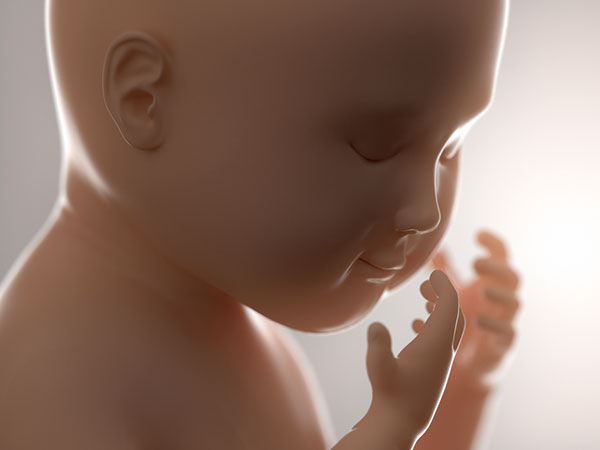Just In
- 1 hr ago

- 5 hrs ago

- 8 hrs ago

- 9 hrs ago

Don't Miss
- Movies
 Bhagya Lakshmi Star Maera Mishra To Get ENGAGED To Beau Rajul Yadav, Her Dreamy Proposal Will Make You Go Aww
Bhagya Lakshmi Star Maera Mishra To Get ENGAGED To Beau Rajul Yadav, Her Dreamy Proposal Will Make You Go Aww - Sports
 Pakistan vs New Zealand 2nd T20I LIVE Updates: Current Weather Update, Match Starts at 7:30 pm PST in Rawalpindi
Pakistan vs New Zealand 2nd T20I LIVE Updates: Current Weather Update, Match Starts at 7:30 pm PST in Rawalpindi - News
 India Vs Pakistan Series Can Be A Booster To Test Cricket: Rohit Sharma; Shahid Afridi Backs Him
India Vs Pakistan Series Can Be A Booster To Test Cricket: Rohit Sharma; Shahid Afridi Backs Him - Finance
 Rs 17.50/Share Dividend: Tata Mid Cap To Consider Dividend On April 29, LIC Stake 9.88%
Rs 17.50/Share Dividend: Tata Mid Cap To Consider Dividend On April 29, LIC Stake 9.88% - Automobiles
 Ola Electric Hits New Milestone – 500th Service Centre Opened In Kochi
Ola Electric Hits New Milestone – 500th Service Centre Opened In Kochi - Education
 Railway RPF Recruitment 2024; Apply Online for 4660 Post Vacancies @rpf.indianrailways.gov.in
Railway RPF Recruitment 2024; Apply Online for 4660 Post Vacancies @rpf.indianrailways.gov.in - Technology
 Best Noise-Cancelling Earbuds Under Rs 5,000: CMF Buds Pro, Redmi Buds 5, Realme Buds Air 5, and More
Best Noise-Cancelling Earbuds Under Rs 5,000: CMF Buds Pro, Redmi Buds 5, Realme Buds Air 5, and More - Travel
 Journey From Delhi To Ooty: Top Transport Options And Attractions
Journey From Delhi To Ooty: Top Transport Options And Attractions
What Causes Anencephaly And What Are Its Symptoms?
Ultrasound scans are an important part of every pregnancy. Most women are required to undergo scanning in order to ensure that the foetus is growing normally. On the other hand, scans are also essential in detecting birth defects.
An increasing number of pregnant women are concerned about birth defects in babies. Though birth defects can easily be diagnosed early on during the pregnancy, most of them are dangerous and often lead to miscarriages. One such birth defect is anencephaly.

What Is Anencephaly?
Anencephaly is a form of neural tube defect, which restricts the brain from developing fully during the foetal stage. This results in a large part of the brain missing and may affect the functions of the brain such as thinking, seeing, hearing and movement.
After conception, the brain and the spinal cord are among the first organs to develop. In fact, they develop out of a flat tube known as the neural tube. Defects in the neural tube due to various reasons may cause the abnormal development of the brain and spinal cord, leading to anencephaly.
Though there are other neural tube defects, anencephaly occurs when a part of the brain, extends into the spinal cord. Anencephaly is a serious condition affecting about 3 in every 10,000 pregnancies, most of them resulting in a miscarriage.

What Causes Anencephaly?
The exact causes of anencephaly are not known, but there are some factors which contribute to the abnormal development of the neural tube. The most important and recurring factor identified in almost all the cases of anencephaly is genetic. So, if there is a family history of neural tube defects in your family, the chances of your baby being diagnosed with anencephaly run extremely high.
On the other hand, there is an increasing number of anencephaly cases with no history of the disease running in the family. In such cases, there are a number of other factors which are known to contribute to anencephaly.

Exposure to certain chemicals like methyl parathion during pregnancy is known to be the second highest reason for the development of anencephaly. Therefore, it is important to be protected from environmental toxins and pesticides during the crucial phase of the pregnancy.
- Certain medications consumed by the mother during pregnancy are also known to be a contributing factor towards the development of anencephaly.
- Doctor advice pregnant women to avoid highly refined, processed and canned food as they are filled with chemicals and preservatives which may alter the DNA of the developing foetus. Therefore, the diet of a mother should strictly be monitored.
- Being in high temperatures for a longer time such as sauna or soaking in a hot tub can lead to the foetus developing neural tube defects such as anencephaly during pregnancy.
- Other factors such as obesity and diabetes, which are already known to increase birth-related complications, further contribute to the development of anencephaly.
- Lack of folic acid in the mother's body is also another common reason for the development of neural tube defects such as anencephaly in developing foetuses.

How Early Can You Detect Anencephaly?
Anencephaly can be detected 16 weeks into the pregnancy with a normal ultrasound scan. If the doctor finds anything abnormal, they may further conduct an anomaly scan to find out if the neural tube defect is indeed anencephaly.
Furthermore, a doctor can conduct the following tests in order to confirm anencephaly.
- Blood tests: The presence of a protein called alpha-fetoprotein indicates anencephaly.
- Amniocentesis: During this procedure, a small amount of amniotic fluid is extracted to study for the presence of alpha-fetoprotein to detect anencephaly.
- Foetal MRI: Foetal MRI will give a more detailed picture of the foetus which will help in reaching an exact diagnosis.
Doctors suggest conducting an anomaly scan as part of the regular check-up between 16-20 weeks of pregnancy for every woman.
What Are The Treatment Options For Anencephaly?
Unfortunately, anencephaly is a rather advanced form of neural tube defect which currently has no cure. Most of the cases of anencephaly are detected early on during pregnancy or right after the baby is born. In both cases, treatment options are only limited to counselling and providing emotional support.
What Is The Life Expectancy Of A Child With Anencephaly?
Most of the pregnancies where the foetus is diagnosed with anencephaly result in a miscarriage. In other cases where the pregnancy thrives, babies are either stillborn and die within a few days after birth. Such conditions can only be avoided.

If you have a history of anencephaly, or any other neural tube defects running in the family, make sure to undergo a genetic testing before you plan to conceive so as to be informed about the chances of you carrying a baby with anencephaly.
-
 yoga spiritualityEid Ul Fitr 2024: 50 Modern Muslim Baby Boy Names Born On Eid With Meaning
yoga spiritualityEid Ul Fitr 2024: 50 Modern Muslim Baby Boy Names Born On Eid With Meaning -
 healthIn China, Infant Is Born With Four-Inch Tail Growing from Its Buttocks, Know The Reason Behind This
healthIn China, Infant Is Born With Four-Inch Tail Growing from Its Buttocks, Know The Reason Behind This -
 fashionRaha Kapoor Twins With Mommy Alia Bhatt At Ambani Pre-Wedding Bash, 7 Tips To Match Outfits With Your Baby
fashionRaha Kapoor Twins With Mommy Alia Bhatt At Ambani Pre-Wedding Bash, 7 Tips To Match Outfits With Your Baby -
 beautyFrom Pigtails To Messy Curls, 7 Trendy Hairstyles Generated By AI For Your Little Fashionista
beautyFrom Pigtails To Messy Curls, 7 Trendy Hairstyles Generated By AI For Your Little Fashionista -
 healthExclusive: Doctor Shares How There Is Rise Of Muhurat Deliveries Aligned With Ram Mandir Consecration
healthExclusive: Doctor Shares How There Is Rise Of Muhurat Deliveries Aligned With Ram Mandir Consecration -
 fashionNew Born Baby Photoshoot Ideas Interpreted By AI, 7 Tips To Make This Cute Session Memorable
fashionNew Born Baby Photoshoot Ideas Interpreted By AI, 7 Tips To Make This Cute Session Memorable -
 fashionYear Ender 2023: Baby Clothing Trends That Will Dominate The Little One's Wardrobe In 2024
fashionYear Ender 2023: Baby Clothing Trends That Will Dominate The Little One's Wardrobe In 2024 -
 insync50 Lord Krishna Names For Baby Boy That Will Bless Your Child With Divine Qualities
insync50 Lord Krishna Names For Baby Boy That Will Bless Your Child With Divine Qualities -
 pregnancy parentingTwo Wombs, Four Hearts: US Mom's Extraordinary Double Uterus Pregnancy
pregnancy parentingTwo Wombs, Four Hearts: US Mom's Extraordinary Double Uterus Pregnancy -
 pregnancy parentingDelhi Air Pollution: Pregnant Women Must Follow These 4 Things!
pregnancy parentingDelhi Air Pollution: Pregnant Women Must Follow These 4 Things! -
 home n gardenHappy Birthday Raha Kapoor: From Customized Wall Art To Figurine Hooks, 8 Ideas To Decorate Your Baby's Room
home n gardenHappy Birthday Raha Kapoor: From Customized Wall Art To Figurine Hooks, 8 Ideas To Decorate Your Baby's Room -
 pregnancy parentingExpert Opinion On Breastfeeding: How It Will Help Baby And Mother
pregnancy parentingExpert Opinion On Breastfeeding: How It Will Help Baby And Mother


 Click it and Unblock the Notifications
Click it and Unblock the Notifications



